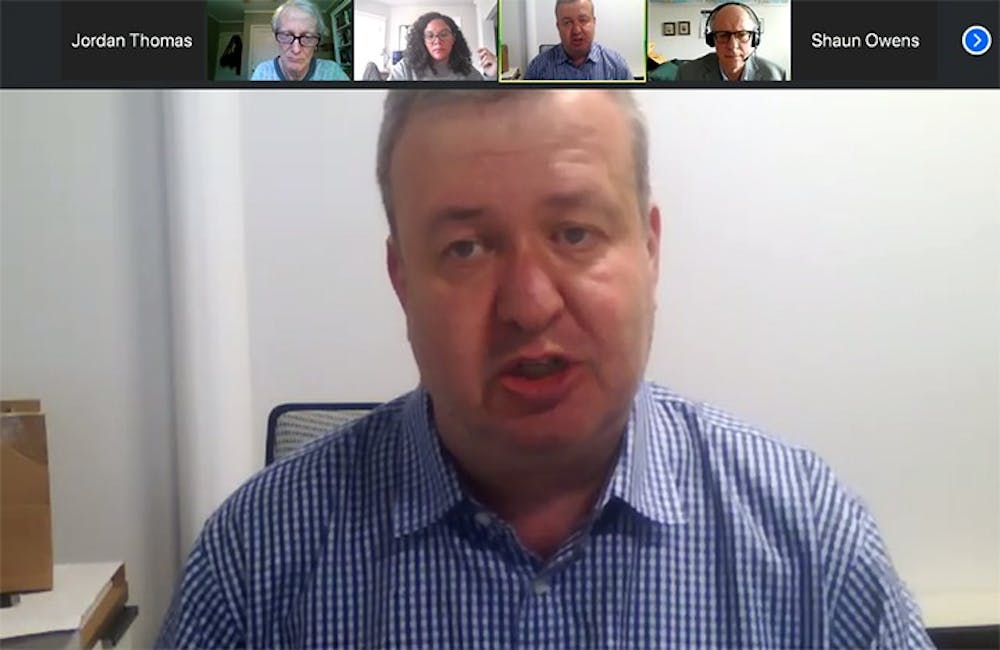Speakers discussed how the pandemic has affected the university at USC's chapter of the American Association of University Professors' "COVID-19 and the Post-Pandemic University" symposium Wednesday afternoon.
Scott Jaschik, one of the founding editors of Inside Higher Ed, a media company that provides news on college and university topics, was the keynote speaker at the event. He expressed doubts about the end of the pandemic.
“The phrase 'post-pandemic university' implies that something bad is about to be over, and I’m not convinced,” Jaschik said. "This is not about to end any time soon."
According to Jaschik, the pandemic has had both good and bad impacts on universities.
"In general, research universities have been doing well during the pandemic," Jaschik said. "The regional state colleges and universities, the community colleges and the private colleges are not doing well."
During the remainder of the symposium, seven USC professors discussed their experiences with the pandemic in their respective departments.
Beki Gettys, the associate dean for public services in the university libraries, highlighted how the pandemic affected the frontline staff of the university libraries.
As COVID-19 cases were rapidly rising last year, the library had to ask its frontline staff to return to work, Gettys said.
"They weren't always performing their regular job duties when they came back," Gettys said. "They were also expected to enforce policies for face coverings and social distancing, and that enforcement has been hard work."
According to Gettys, the library's experience with the pandemic has brought forth the issue of how "grossly underpaid" these frontline workers are.
"These are jobs that are often occupied by people of color, and I think that if we are looking to build a more equitable and robust university, we really need to take a hard look at these positions on campus," Gettys said.
Agnes Mueller, College of Arts and Sciences professor and director of the global studies program, said she had a more "rewarding and positive" experience during the pandemic.
Mueller said she designed a class called "Pandemics in Literature" focusing on the portrayal of epidemics in literature.
According to Mueller, reading literature from past pandemics was comforting for students dealing with the isolation and restrictions caused by the pandemic.
"[The class] has been an incredibly positive overall experience that I would never have had, that students certainly would not have had, had it not been for the pandemic," Mueller said.
While some speakers discussed their experience teaching during COVID-19, others, such as department of sociology professor Andrea Henderson-Platt, expressed concerns about the mental health of students, faculty and staff when university operations return to normal.
"Depression and anxiety is expected to rise during the post-pandemic time as a result of isolation," Henderson-Platt said.
The university's leadership has been receptive to conversation about mental health now and in the future, according to Henderson-Platt.
"What is needed is empathetic and compassionate leadership, the recognition that there are multiple constituencies at play and the ability to speak directly to and or listen to all of them is really important," Henderson-Platt said.
Greg Forter, an English language and literature professor and secretary of USC's chapter of the AAUP said that the symposium's goal "was to encourage people to talk to each other about what they're doing across campus."
Forter said he is interested in holding more symposiums in the future.

